Nocturnal leg cramps are sudden, involuntary contractions of the muscles in the calves, feet, or thighs, causing severe pain and stiffness that lasts for a few seconds to a few minutes. This phenomenon often occurs while resting or sleeping, causing the patient to wake up in the middle of the night because of the sharp pain and difficulty moving.
1. How do nighttime leg cramps occur?
- 1. How do nighttime leg cramps occur?
- 2. Common causes of leg cramps at night
- 3. Effective ways to prevent leg cramps at night
Nocturnal leg cramps are sudden, involuntary contractions of one or more muscles in the leg, usually occurring while resting or sleeping.
Muscle spasms appear suddenly, causing sharp pain, stiffness and temporary difficulty moving. Each spasm can last from a few seconds to a few minutes, after which the muscle area remains dull and aching.
This phenomenon is common in the elderly, pregnant women, people who are sedentary or have neurological, muscular and circulatory diseases. The cause is often related to muscle fatigue, dehydration, electrolyte imbalance or poor blood circulation.
The typical symptom is a sudden, severe muscle spasm, usually in the calf but sometimes radiating down the foot or thigh. The affected muscle may tighten, become lumpy, or become visibly stiff under the skin. During a cramp, the person may be unable to move the leg or foot.
After the spasm has passed, the muscles often remain sore, stiff or weak, leaving the legs feeling heavy the next morning. If this condition recurs frequently, the sufferer may experience sleep disturbances, fatigue or anxiety due to fear of recurrence.
Although usually benign, if they occur frequently, leg cramps can affect sleep quality and be a warning sign of electrolyte imbalance, dehydration, or vascular or neurological disease. Early identification of the cause and appropriate preventive measures can help reduce the frequency and severity of this condition.
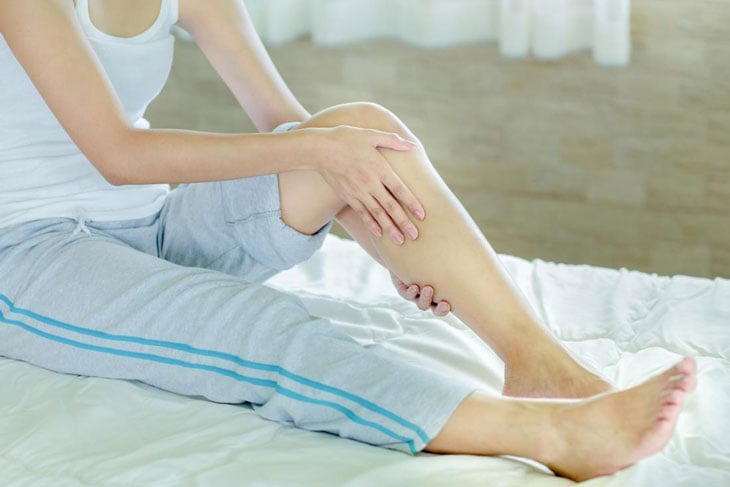
The cause of cramps is often related to muscle fatigue, electrolyte imbalance or poor blood circulation.
2. Common causes of leg cramps at night
Nocturnal leg cramps can occur without an obvious cause, but many physiological, lifestyle, or underlying medical factors may contribute to an increased risk.
2.1 Fatigue and muscle overuse: Strenuous physical activity, standing or walking for long periods of time – especially without warming up or stretching properly – can cause muscles to tire and cramp at rest. Cramps are also common in beginners or athletes.
2.2 Dehydration and electrolyte disturbances: The body is dehydrated or lacks minerals such as sodium, potassium, calcium and magnesium, causing the muscles to contract uncoordinatedly, making them prone to cramps. This condition is common when sweating a lot, in hot weather or after strenuous exercise without adequate hydration.
2.3 Poor circulation and nerve compression: Reduced blood flow to the legs (as in peripheral artery disease) or nerve compression due to spinal stenosis can cause pain and muscle stiffness, especially when lying down.
2.4 Aging: With age, muscle mass decreases and nerves weaken, making motor control less flexible, increasing the frequency of night cramps in the elderly.
2.5 Pregnancy: Pregnant women, especially in the second and third trimesters, often experience cramps due to hormonal changes, increased venous pressure, and poor blood circulation. Calcium, magnesium deficiency, or dehydration are also contributing factors.
2.6 Related diseases: Night cramps can be a manifestation of a number of health conditions:
- Kidney disease, diabetes, or thyroid disorders.
- Cirrhosis, anemia, Parkinson's disease, or peripheral neuropathy.
- Spinal stenosis or nerve damage.
These conditions are often accompanied by numbness, muscle weakness, or fatigue.
2.7 Side effects of medication: Some medications, such as diuretics, statins, antihypertensive drugs or oral contraceptives, can alter electrolytes or affect muscle function, leading to cramps. If they appear after taking a new medication, you should talk to your doctor.
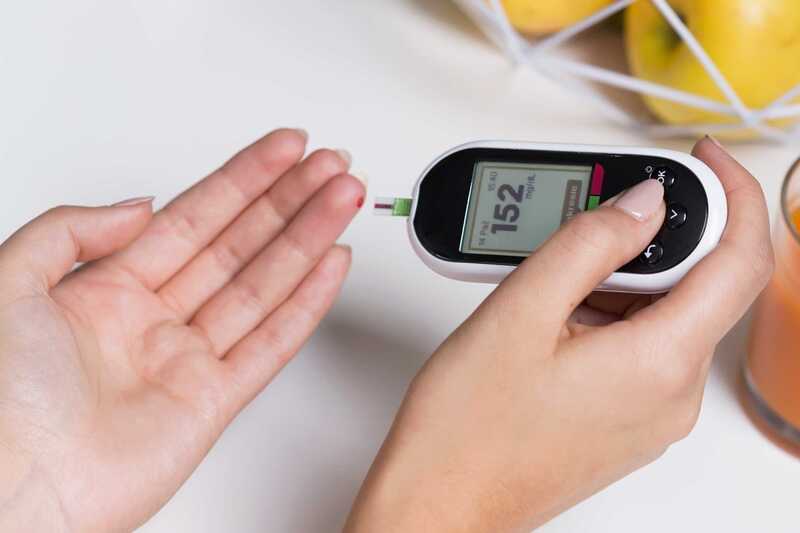
Leg cramps at night can be a sign of certain health conditions such as diabetes or thyroid disorders...
2.8 Sedentary lifestyle: Sitting or lying down for long periods – such as when working at a desk or traveling – reduces blood circulation and causes muscles to weaken, making them more prone to spasms at rest.
2.9. Alcohol use and liver disease: Alcohol can reduce the absorption of magnesium and B vitamins – substances necessary for muscle activity. In alcoholic liver disease, toxins accumulate in the blood, increasing the risk of muscle cramps.
2.10. Cold temperatures: Sleeping in a cold environment or exposing your feet to cool air causes your muscles to contract, increasing the likelihood of cramps while you are resting.
3. Effective ways to prevent leg cramps at night
Although nighttime leg cramps are usually not dangerous, making lifestyle changes and taking proper care of your body can significantly reduce the frequency and severity of the pain.
1. Keep your body hydrated: Drinking enough water during the day helps your muscles function smoothly and reduces the risk of cramps. If you exercise or sweat a lot, you should supplement with electrolyte water (containing sodium, potassium, magnesium) instead of just drinking water.
2. Stretch before bed: Do some gentle stretches for your calves and feet before bed — such as straightening your legs and pulling your toes toward you — to help relax your muscles and improve circulation.
3. Exercise regularly, avoid sitting or standing for too long: Gentle exercise such as walking, cycling, yoga or swimming helps increase muscle strength and elasticity, reducing the risk of cramps. If you have to sit or stand for a long time, change your position or stretch your legs for a few minutes every hour.
4. Choose the right footwear: Wearing shoes with soft soles, a snug fit, and proper arch support helps reduce pressure on muscles and ligaments, especially if you stand or walk a lot.
5. Supplement essential minerals: A diet rich in potassium, magnesium and calcium helps muscles function normally.
- Foods rich in potassium: Bananas, sweet potatoes, oranges, avocados, coconut water.
- Foods rich in magnesium: Almonds, soybeans, dark green vegetables, whole grains.
- Foods rich in calcium: Milk, yogurt, cheese, small fish with bones. If you suspect a deficiency, consult your doctor before taking supplements.
6. Keep warm when sleeping: Avoid exposing your feet to cold air. You can use a thin blanket or sleeping socks to maintain a stable temperature, helping to prevent muscle stiffness.
7. Massage or take a warm bath at night: Soak your feet in warm water for 10-15 minutes or massage your calves to help relax your muscles, improve blood circulation and reduce the risk of cramps.
8. Adjust your current medication (if necessary): If cramps appear after taking a new medication, you should inform your doctor. Do not stop taking the medication on your own, but your doctor may adjust the dose or switch to a more suitable one.
9. Control underlying diseases: People with diabetes, kidney disease, liver disease or thyroid disorders should adhere to treatment and have regular check-ups, as these diseases can increase the risk of muscle cramps.
Please watch more videos :
Source: https://suckhoedoisong.vn/10-nguyen-nhan-gay-chuot-rut-chan-ban-dem-phong-ngua-nhu-the-nao-169251101122623915.htm


![[Photo] Comrade Nguyen Duy Ngoc holds the position of Secretary of the Hanoi Party Committee](https://vphoto.vietnam.vn/thumb/1200x675/vietnam/resource/IMAGE/2025/11/04/1762234472658_a1-bnd-5518-8538-jpg.webp)
![[Photo] Panorama of the Patriotic Emulation Congress of Nhan Dan Newspaper for the period 2025-2030](https://vphoto.vietnam.vn/thumb/1200x675/vietnam/resource/IMAGE/2025/11/04/1762252775462_ndo_br_dhthiduayeuncbaond-6125-jpg.webp)

![[Photo] The road connecting Dong Nai with Ho Chi Minh City is still unfinished after 5 years of construction.](https://vphoto.vietnam.vn/thumb/1200x675/vietnam/resource/IMAGE/2025/11/04/1762241675985_ndo_br_dji-20251104104418-0635-d-resize-1295-jpg.webp)
![[Photo] Ca Mau "struggling" to cope with the highest tide of the year, forecast to exceed alert level 3](https://vphoto.vietnam.vn/thumb/1200x675/vietnam/resource/IMAGE/2025/11/04/1762235371445_ndo_br_trieu-cuong-2-6486-jpg.webp)
![[Photo] Ho Chi Minh City Youth Take Action for a Cleaner Environment](https://vphoto.vietnam.vn/thumb/1200x675/vietnam/resource/IMAGE/2025/11/04/1762233574890_550816358-1108586934787014-6430522970717297480-n-1-jpg.webp)







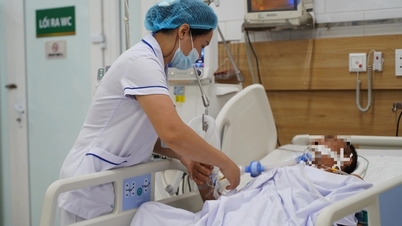






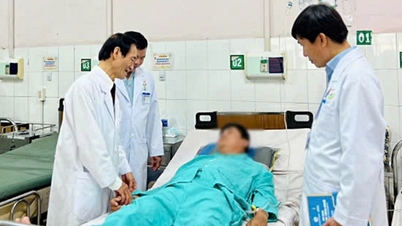



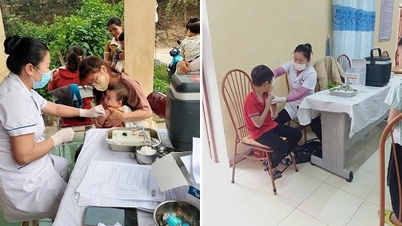


















































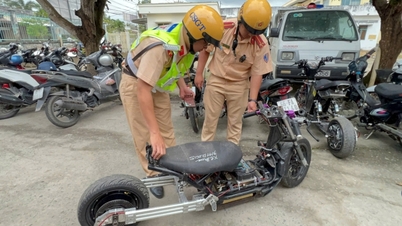





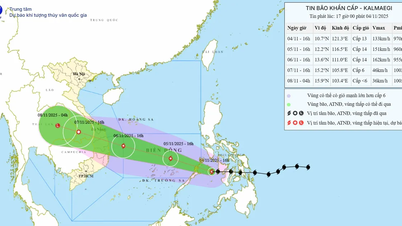


















Comment (0)